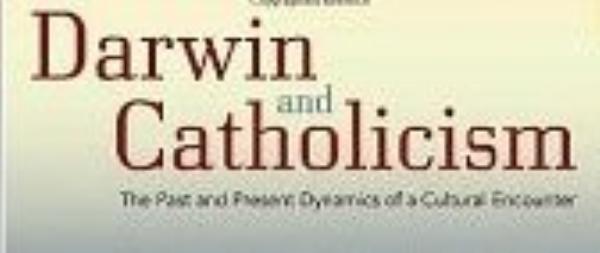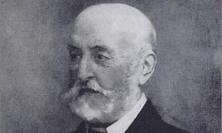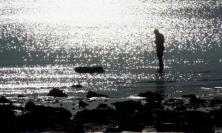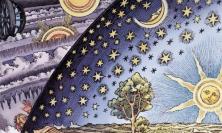Here is a volume which any theologically reflective Christian would want to have on their bookshelves. Fr Louis Caruana, a Maltese Jesuit teaching at Heythrop College, London, has compiled a collection of no fewer than fourteen articles by leading Catholic scholars from all over the world which gives a timely snapshot of the state of play in the dialogue between Catholic theology and the legacy of Charles Darwin. It certainly provides a good idea of just how fertile and creative Catholic theology has been over the last century and a half, and of how intense its engagement is today with a host of other disciplines all affected in one way or another by the idea of natural selection.
God knows, such a book is needed. These days, the faith’s keenest tormentors are often those who claim to be Darwin’s most loyal custodians. Tellingly, they more often than not hang on to some very pre-Darwinian notions about truth, knowledge and morality. One of the points this book serves to make is that there is much in Catholic thought which resonates profoundly with Darwin’s own intuitions and in some areas Catholics could be said to be more in tune with the great naturalist than some of his more vociferous champions.
If that surprises you then there is no better reason to buy a copy of the book. That it is likely to do so is one of the more subtly pernicious effects of the ‘God Delusion’ phenomenon. Backed up by a media machine with little stomach for complexity, it has contrived to give the impression that Christian intellectual life has been in cryogenic suspension ever since the publication of The Origin of Species. If Christian intellectuals have fortified that impression by their reluctance to ‘stand up’ to Richard Dawkins and his ilk, it is not, I would aver, for want of intellectual equipment for the job. Quite the opposite, they have baulked at the challenge of having to talk to an aggressor who refuses point blank to address the substantial body of literature which has grown up since Darwin transformed our sense of what it is to be human. It’s not that it’s hard to come up with a response; it’s knowing where to begin.
In spite of an initial caution on the part of the magisterium, positive Catholic appraisals of Darwin’s ideas have never been thin on the ground; that goes for latter papal documents as much as the more speculative of theologians. Pawel Kapusta covers the former whilst two subsequent chapters deal with important theoretical contributions from a pair of twentieth century Jesuits who were notably enthusiastic in their endorsement of evolutionary ideas. No-one will be surprised to find a discussion of (the actually not very Darwinian) Pierre Teilhard de Chardin, whose speculative writings have cast a long and fruitful shadow on contemporary Catholicism. More surprising, and in some ways more stimulating, is an excellent summary by Patrick H. Byrne and Frank Budenholzer of the evolutionary aspect of the thought of Canadian philosopher, Bernard Lonergan, whose category of ‘emergent probability’ deserves to be better known.
The book then turns to the present day. Much of what passes for theological comment on Darwin these days amounts to a crude ‘compatibilism’, which maintains baldly that religion and science are (to use Stephen Jay Gould’s useful phrase) ‘non-overlapping magisteria’: science can’t touch theology and is itself impervious to theological comment because the two disciplines address totally different sorts of question. At a push, there may be a bit of an overlap on a question like the doctrine of creation. In which case, again, the compatibilist will say that God can choose to create by means of evolution and hope, thereby, to have safeguarded the sovereignty of the theologian who is free to carry on as if nothing had happened.
But Catholic theology does not work like that. The world that theology talks about in its doctrines of creation, incarnation and eschatology is the very same world as the one scientists study, describe and try to understand. And that world we now know, thanks to evolutionary theory, to be not at all the stable, fixed universe of classical philosophy, but a dynamic one in a perpetual state of becoming. Arguably, much of the difficulty of believing today lies in a certain cognitive dissonance: the cosmology that religious faith so often seems to pre-suppose clashes with the modern sense of how the world is, as disclosed by scientific observation and theory. Once you realise how significant and disruptive a new cosmology is for theology, then you have to face the fact that there is a lot of work to do in rethinking and re-presenting the faith in a way that makes sense to the contemporary scientific mind.
The task is, in fact, huge. It means dealing with quite subtle philosophical points about the nature of scientific theories: Peter van Inwagen’s excellent article on the theory of evolution is a brave and lucid treatment of the vexed question of just how much evolutionary theorists are entitled to claim. It means attending to a host of definitions, distinctions and lines of demarcation so that we know exactly what Darwin said and what constitutes a legitimate extrapolation of his ideas into other areas of enquiry. It means dialoguing critically with those contemporary sciences which have assimilated evolutionary assumptions and motifs: Albino Barrera deals with economics whilst Louis Caruana tackles socio-biology, social Darwinism and eugenics, offering some surprising insights into how Catholic thought stands to benefit from some of these approaches. It means re-examining theological ideas like creation (Joseph M. Życiński) and divine providence (John F. Haught) in the light of the new paradigm. And, most excitingly of all, it means rethinking the basis of our ethics; Stephen Pope’s excellent survey of the complex relationship between Catholic moral philosophy and evolutionary theory explains how evolutionary biology gives a sense of the human animal which is both new and yet also in continuity with older Aristotelian notions.
One of the difficulties with all this is that it’s in bits and pieces. It would be nice to have a single framework which could unite all the disciplines of the modern university, as Alasdair McIntyre calls for in a recent book.[1] If such a thing were to materialise in the near future it would be hard to imagine it not including a strong evolutionary component. For now, though, we have to accept that the Darwinian synthesis has not led to its own systematic metaphysics and, for that reason, the theological spadework needs to be piecemeal and quite humble. At least one of the authors here, the American theologian, John Haught, has elaborated something like a grand theological vision[2] but, suggestive, even inspiring, as it is, it’s hardly (yet) the stuff of consensus.
There is one lacuna I would pick up on. It’s one of those strange, forgotten truths that by the end of the nineteenth century, which is when the Catholic effort to integrate evolutionary ideas was getting off the ground, Darwin himself had been temporarily eclipsed in Europe by Henri Bergson’s vitalism and it was the latter’s thought, not Darwin’s, which was adopted with enthusiasm by several significant Catholic thinkers, albeit in altered and corrected form. Teilhard, well covered in this book, was Bergsonian in many of his assumptions. But there is another Bergsonian line which takes in Charles Péguy, Emmanuel Mounier and leads eventually to the personalism of John Paul II and of Benedict XVI; it’s hard to read the latter’s Caritas in Veritate with its constant invocation of ‘integral development’ without sensing the covert presence of an evolutionary ethos. But it isn’t Darwinian at all, it’s Bergsonian and it may well be that our unwitting Bergsonianism is to blame for our having been caught off guard by the resurgence of an aggressive neo-Darwinism. This admirable and useful book is about Darwin rather than ‘evolution’ and that precludes from the outset an examination of the kind of evolutionary thinking with which a number of important Catholic figures have been concerned. One of the more audacious essays, Louis Dupré’s intriguing discussion of the idea of the ‘fertility’ of matter, also happens to be the closest the book comes to expounding Bergson’s radical but now unfashionable ideas.
The reviewer, Damian Howard SJ, is a member of the Thinking Faith editorial board.






